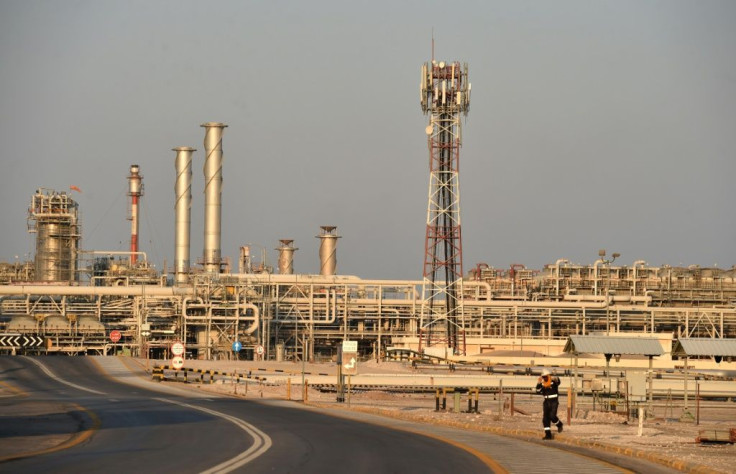Saudi Oil Attack Underscores Need For Energy Independence

When drones suddenly struck Saudi Arabia's oil processing facilities in September, 6% of global oil production went offline overnight. Shockingly, the attack compromised more barrels per day than the Arab oil embargo, the Iranian Revolution, or the Iraqi invasion of Kuwait.
Yemen's Houthi rebels claimed responsibility, but U.S. officials quickly pointed a finger at their backers in Iran. Either way, the intent was clear: create massive disruption in the global oil market, sending prices soaring and leaving the United States and its allies reeling.
What happened next -- or rather what didn't -- was no less shocking.
As recently as a decade or so ago, the attackers would almost certainly have made good on their intentions. Knocking out 5.7 million barrels a day of Saudi crude production would indeed have roiled oil markets for months, if not years. Commuters would have panicked, lining up at gas stations to top off fuel tanks. U.S. military planners would have prepared to execute a retaliatory counter-strike, possibly plunging the Persian Gulf region into full-scale war.
None of that happened. After the airstrike, global oil prices quickly rose -- but by only 15%. And within a week, they were back to pre-strike levels. There were no devastating gas lines in the United States and no escalation of conflict in the Persian Gulf.
In fact, most Americans did not even notice. Why not? What has changed to make an attack on this scale almost a non-event in the global energy market?
America's energy boom.
Last year, the United States became the world's largest producer of crude oil for the first time since 1973. While the attack compromised Saudi oil, America's oil and gas resources were unaffected and available to cushion the impact of the attack on the global market.
That's how important domestic energy development is to our national security: It may have just averted a war.
This massive geopolitical tilt in favor of the United States and its allies is thanks to fracking -- a drilling technique that breaks up underground rock formations to free oil and gas. U.S. energy firms have unlocked vast oil and gas reserves in recent years despite environmentalists' resistance.
America now produces 18% of the world's oil, while Saudi Arabia produces 12%. Soon, Texas alone could produce more oil than Iraq or Iran -- two countries whose oil assets have weighed heavily on our foreign policy deliberations for decades.
At the same time, we're importing less and less energy. Since 2008, our net energy imports have dropped 95%. U.S. net imports of petroleum are at their lowest percentage levels since 1957. The media, which for decades endlessly bemoaned America's reliance on foreign oil, are curiously quiet about this amazing strategic breakthrough. For those that harp constantly about America's inability to accomplish long term goal, the media sure seems determined to not talk about such a success.
U.S. producers also have the ability to increase supplies at a moment's notice based on market conditions. Currently, firms have thousands of drilled-but-uncompleted fracking wells at their disposal. West Texas' Permian Basin alone hosts roughly 4,000 of these wells. That is a lot of built-up resiliency.
Such spare capacity means smoother petroleum markets -- and less reliance on energy produced in Russia, China, and Iran, which still account for a fifth of the global oil supply.
In short, we weathered oil disruption from the Abqaiq attack well. But what about the next unforeseen attack, embargo, quota, sanction, or natural disaster? We have to ask ourselves whether we will be ready for even worse to come.
There are a few things we can do to make sure that the answer is a resounding yes.
First, we can stop blocking the wealth of energy lying off our own coastline. D.C.-controlled offshore territories hold roughly 90 billion barrels of oil and 328 trillion cubic feet of gas. Right now, however, government bureaucrats prohibit any energy exploration in nearly 94% of those areas. Inexplicably, the same bureaucrats refuse to even survey these areas. Nothing says “I love science” more than refusing to let go of data gathered thirty years ago with 1980’s technology.
Second, both state and federal regulators can use a common-sense approach for oil and gas pipeline approvals. Currently, regulators in New York -- a state in desperate need of natural gas and with skyrocketing energy prices -- are yielding to out-of-state special interest groups to block pipeline construction. By funneling affordable energy to American consumers, pipelines make us less reliant on foreign sources. Perhaps most distasteful is that many of these very activists abandoned upstate NY years ago. They're now back not to help but to block these desperately needed jobs.
The failure of the attack on Saudi Arabia to disrupt global markets no doubt came as a disappointment to those terrorists. Unfortunately, they are more likely to redouble their destructive efforts than to abandon them.
With policies that encourage more energy production at home, we can weather the storm and avoid crippling gas lines.
Michael James Barton is the founder of Hyatt Solutions and previously served as the deputy director of Middle East policy at the Pentagon.
© Copyright IBTimes 2025. All rights reserved.





















